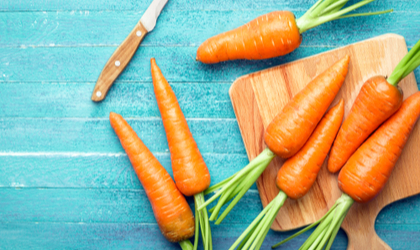
There’s been a lot of noise around fibre in recent years – and for good reason. Found abundantly in plant foods, fibre is a workhorse for your wellbeing, known to support everything from your gut and brain to your heart and immune function.
A special type of dietary fibre, beta glucans have shown great promise at targeting different areas of health. Evidence suggests these unique plant fibres are biologically active, which is responsible for their impressive and far-reaching properties (1).
Here, we take a closer look at how beta glucans work in the body, along with where to find them in your diet.
How do beta glucans work?
There are two types of dietary fibre: soluble and insoluble. Soluble fibre dissolves in water and forms a gel-like substance once. Insoluble fibre, on the other hand, doesn’t dissolve; it simply pulls in liquid as it traverses through your digestive tract.
Beta glucans are a specific type of soluble fibre. And, as is the case with all sources of soluble fibre, beta glucans slow the passage of food from your stomach to the intestines – qualities known to support blood sugar regulation and heart health, amongst other things.
What foods are rich in beta glucans?
You can find beta glucans in a range of foods, including plants, like barley, rye, wheat, oats, and mushrooms (reishi, shiitake, and maitake), as well as in the cell walls of certain bacteria, yeasts, fungi and algae (seaweed).
The most concentrated source of beta glucans, however, is Saccharomyces cerevisiae, which is found in the cell wall of baker’s yeast.
How can I increase my daily intake of beta glucans?
To increase your intake of beta glucans, you may wish to add oats to baked goods, smoothies, or protein shakes.
Soups are another easy way to bundle beta glucans into your diet. You can make a delicious broth from dried shiitake mushrooms (dashi), which is often used as the base for Japanese ramen.
Besides upping your dietary sources of beta glucans, taking a supplement – ideally, one containing Saccharomyces cerevisiae – may help support your health in a more specialised way.
How do beta glucans support health?
Beta glucans continues to fascinate researchers. And the data suggests these unique plant compounds have the ability to target many different areas of health.
May support heart health
The beta glucans found in oats and barley are probably best known for their role in heart health. According to official guidelines, eating 3 grams of beta glucans a day – a bowl of porridge, 3 oatcakes, or 60g of cooked pearl barley – may help lower cholesterol (2).
When you eat beta glucans, they produce a gel-like substance that binds to cholesterol-rich bile in the small intestines. This, in turn, prevents it from entering the bloodstream and may help reduce cholesterol as a result.
May support gut health
Certain beta glucans – namely those found in barley and oats – are soluble fibres, meaning they absorb water from the gut. These unique properties are said to help optimise digestion and regularity.
The fibres found in beta glucans may also feed the good bacteria in the gut, further supporting overall gut health.
May support immunity
In an extensive 2020 review, researchers explored the role a specific type of beta glucans (beta 1,3/1,6-glucans) derived from baker’s yeast (Saccharomyces cerevisiae) plays in immune function (4). The evidence suggests these fibres have powerful antioxidant properties, which may support the body’s immune defences.
People choose to take a beta glucans supplement for various reasons. If you want to learn more about how they can support your health, feel free to reach out to our team of expert Nutrition Advisors here.
References
-
Vetvicka, V., Vannucci, L., Sima, P., & Richter, J. (2019). Beta Glucan: Supplement or Drug? From Laboratory to Clinical Trials. Molecules (Basel, Switzerland), 24(7), 1251.
-
Six cholesterol-busting foods. (2022). https://www.heartuk.org.uk/healthy-living/cholesterol-lowering-foods
-
De Marco Castro, E., Calder, P. and Roche, H., 2020. β?1,3/1,6?Glucans and Immunity: State of the Art and Future Directions. Molecular Nutrition & Food Research, 65(1), 1901071.
Related Posts
Disclaimer: The information presented by Nature's Best is for informational purposes only. It is based on scientific studies (human, animal, or in vitro), clinical experience, or traditional usage as cited in each article. The results reported may not necessarily occur in all individuals. Self-treatment is not recommended for life-threatening conditions that require medical treatment under a doctor's care. For many of the conditions discussed, treatment with prescription or over the counter medication is also available. Consult your doctor, practitioner, and/or pharmacist for any health problem and before using any supplements or before making any changes in prescribed medications.

Olivia
Olivia Salter has always been an avid health nut. After graduating from the University of Bristol, she began working for a nutritional consultancy where she discovered her passion for all things wellness-related. There, she executed much of the company’s content marketing strategy and found her niche in health writing, publishing articles in Women’s Health, Mind Body Green, Thrive and Psychologies.
View More



